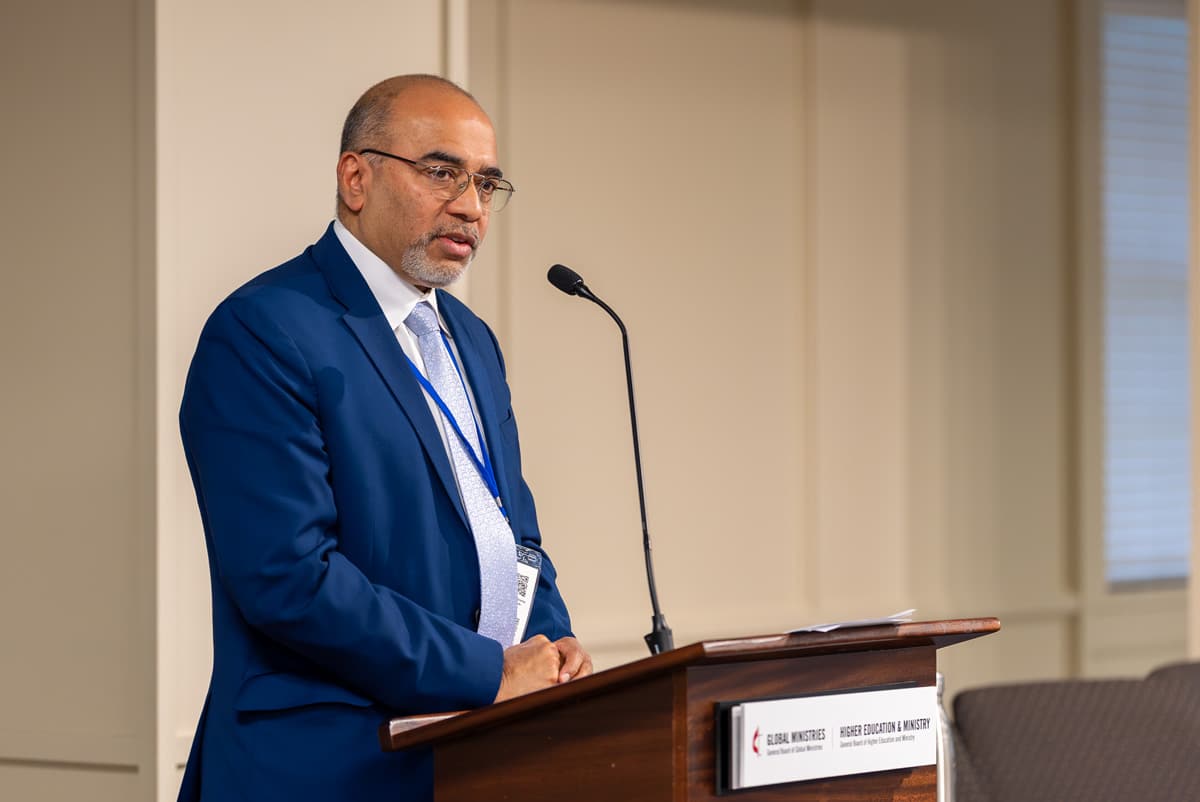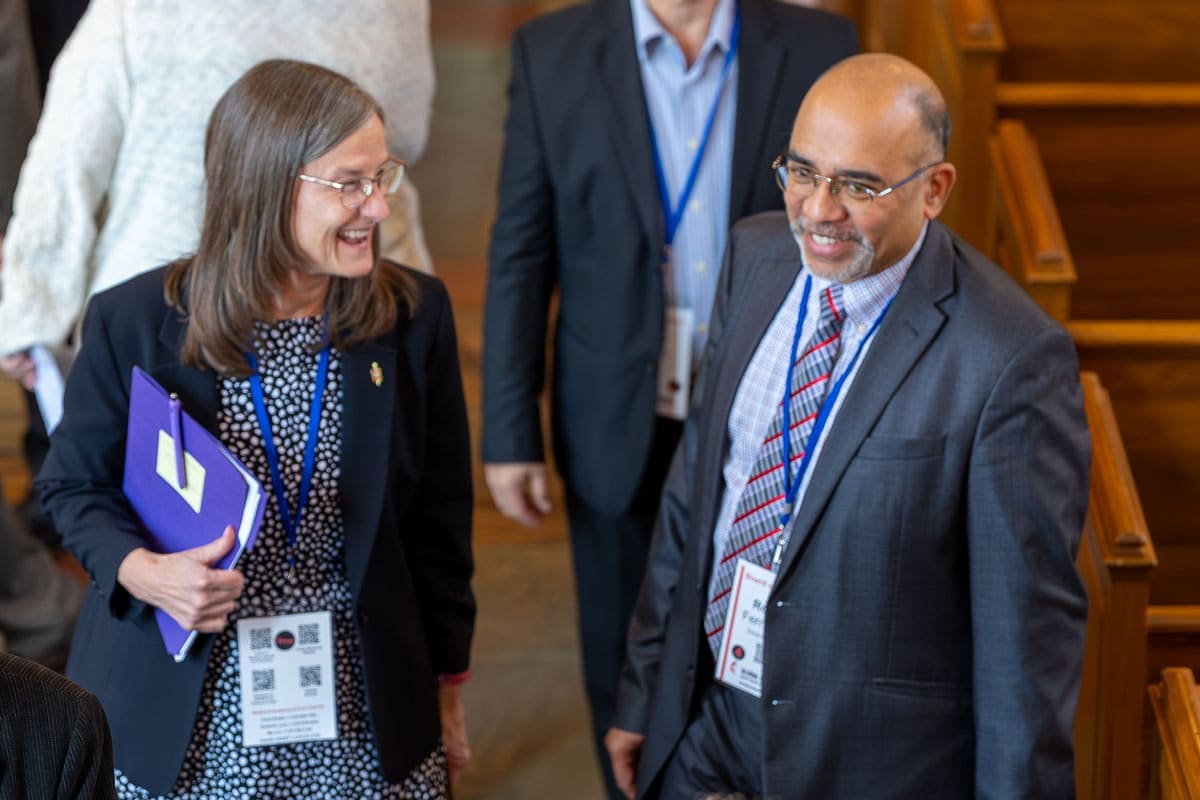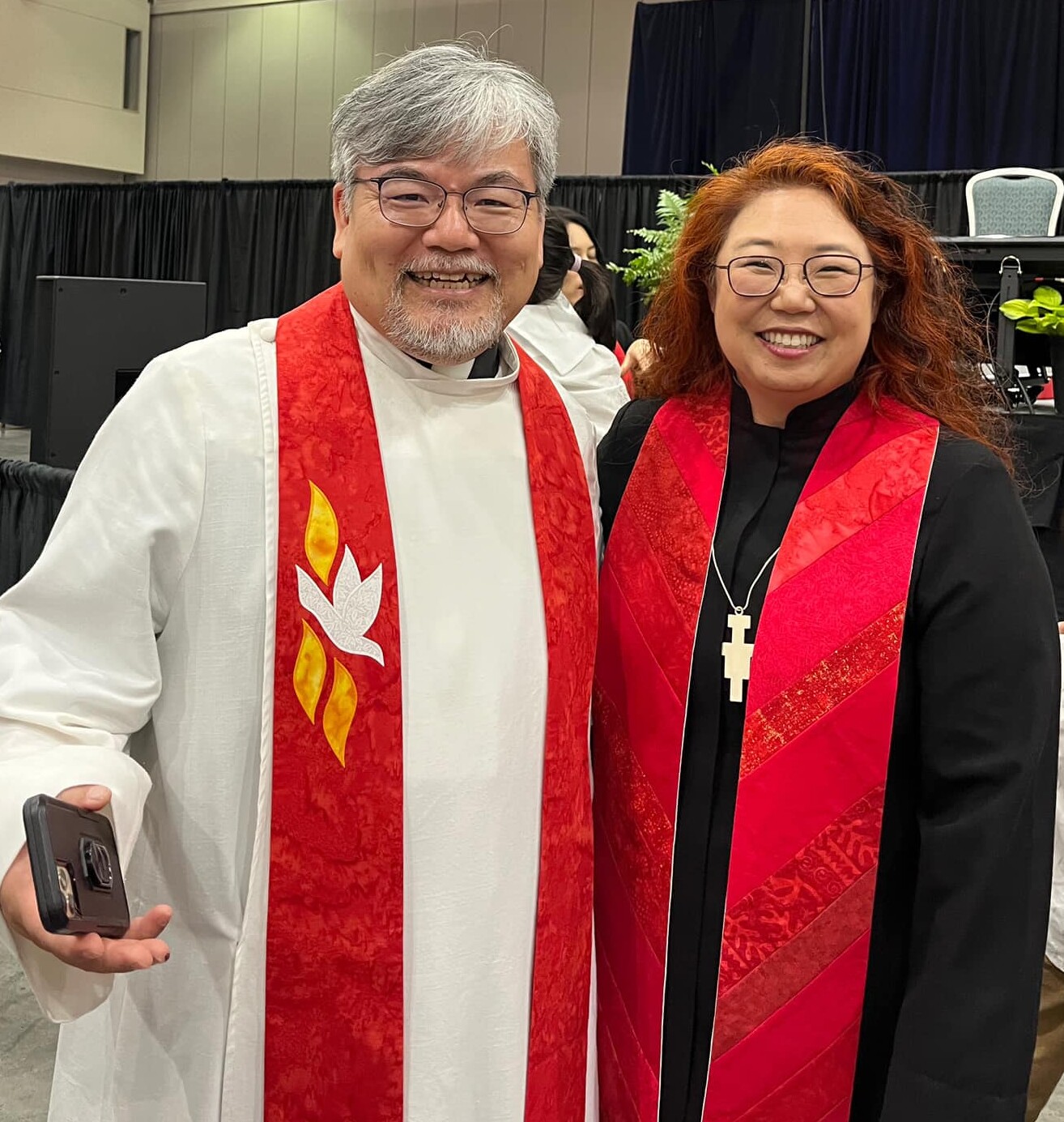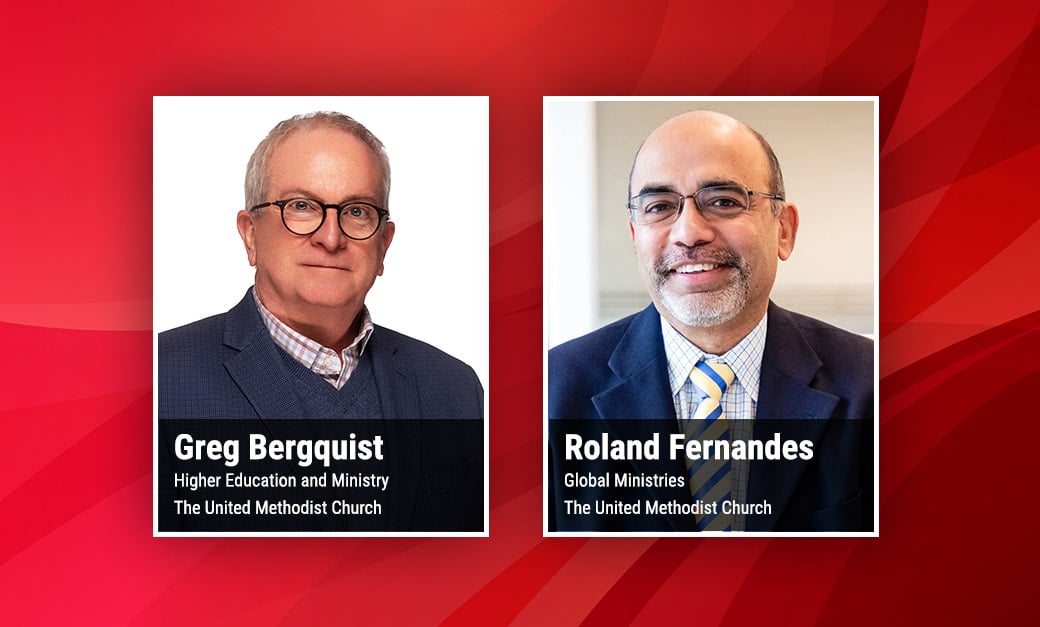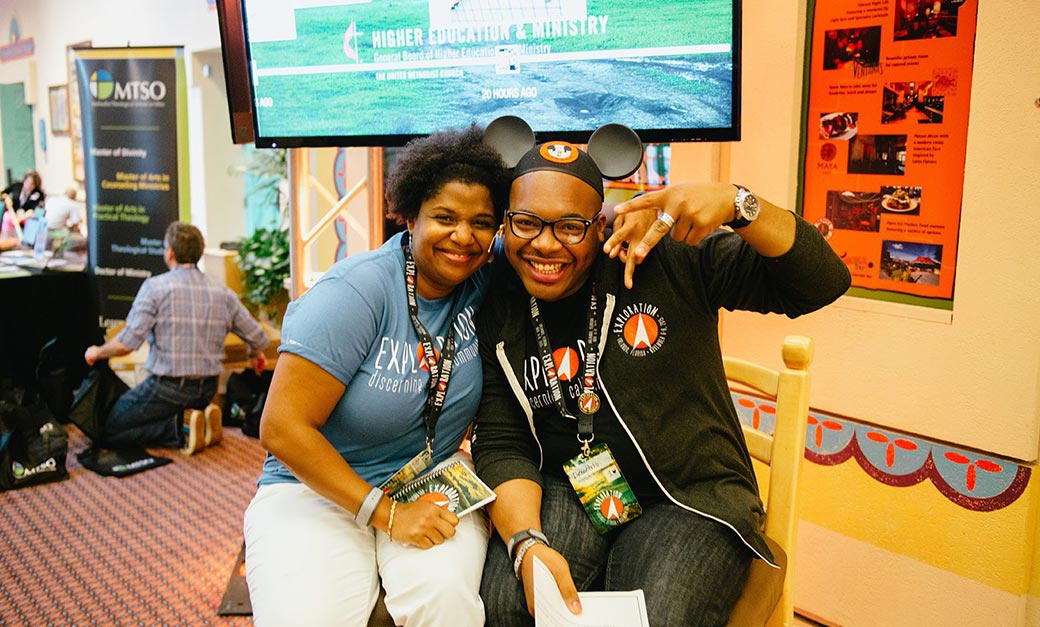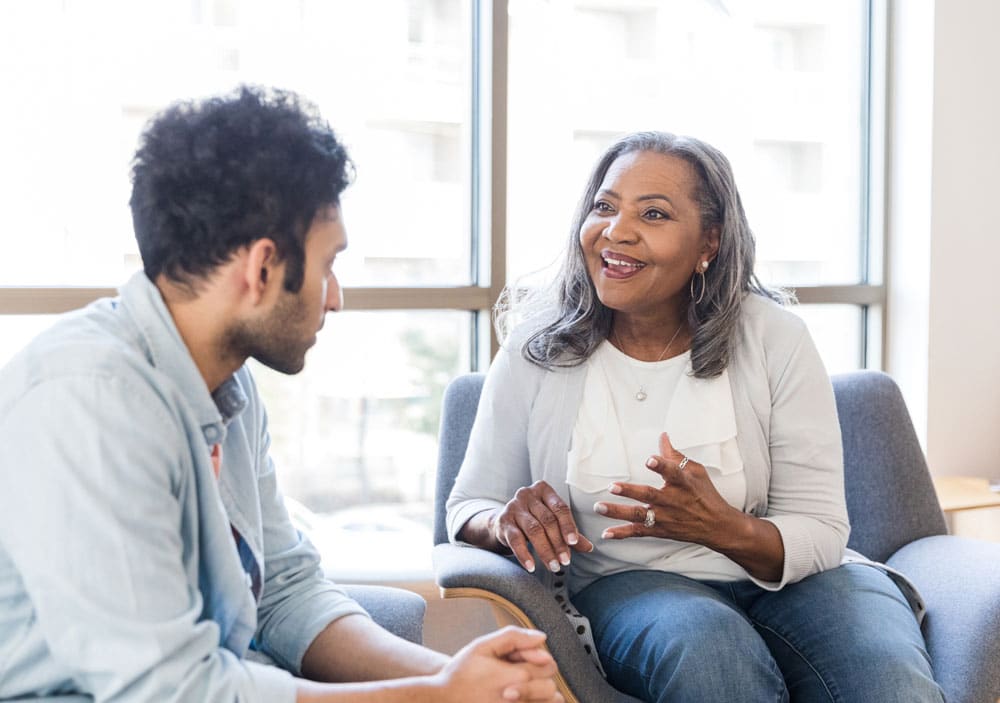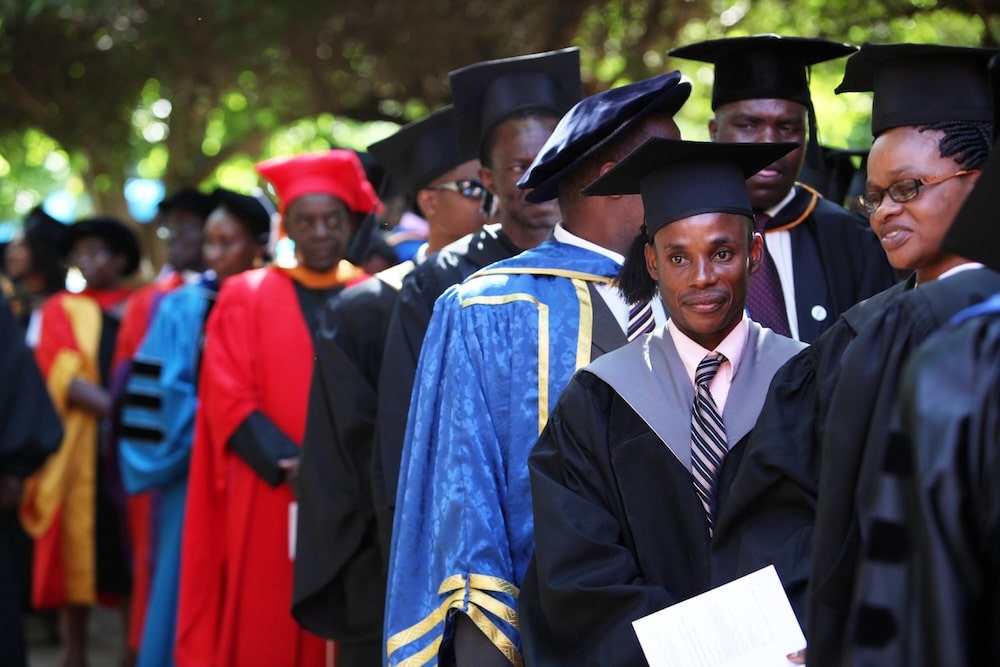Women of Color Scholars’ Series: Sun-Ah Kang Breaks Gendered Barriers in Theology
By Jessica Love
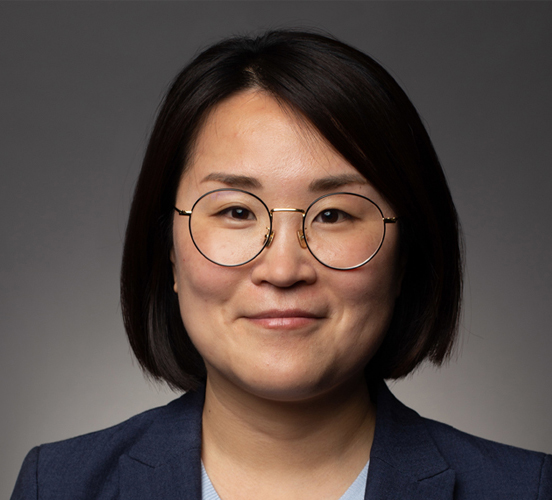
South Korea native Sun-Ah Kang vividly remembers the moment God called her to be a champion for women in ministry.
“When I was in high school, I went to this retreat and the guest speaker was a male, very old, retired pastor,” Kang recounted. “He talked about how sin came to the world through women. He said that all women have to apologize for their sins… So, that’s how I got really interested in learning the Bible… I thought ‘How in the world can we have such an extremely, violent oppressing teaching?’”
Kang felt called by God to learn more, to do more.
“I needed to tell other women that it’s not your fault for being a woman, so you don’t need to apologize for it,” she said.
With the encouragement of her father, who is also a pastor, Kang headed to the United States after graduating with her bachelor’s degree to find more resources and attend seminary.
Now, as part of the Angella P. Current-Felder Woman of Color Scholars program, Kang is breaking down gendered barriers in theology as a doctoral candidate at Garrett-Evangelical Theological Seminary in Evanston, Illinois.
The Angella P. Current-Felder Women of Color (WOC) Scholars program is administered by the General Board of Higher Education and Ministry (GBHEM), and is designed to provide financial, intellectual and personal support to United Methodist women of color pursuing doctorates in religious studies at seminaries and universities across the U.S.
The Challenge: Unlearning
Working toward her goal has not always been easy or exciting. Kang said that her greatest challenge has been unlearning the hegemonic, white gaze of theology.
“Growing up, I learned pretty much a white male’s view of the Bible,” Kang remembered. “So, I hadn’t thought about that influence a lot. I began asking more questions about my social location as a woman of color. How can old, white guys’ teachings be a plight to my social location?”
Kang said that it was Asian and Asian-American hermeneutics teachings that challenged her to think differently. That experience was eye-opening for her because it exposed her to various cross-cultural readings of biblical texts.
“That was really an ah-ha moment,” Kang said. “I believe that everyone has very different social locations, and we have to be exposed to various readings, believing that there’s no one universal reading of the Bible. That’s really liberation.”
Women of Color Scholars: A Brave Collective
Kang’s desire to make space for women in theology instantly drew her to the WOC Scholars program. Three years ago, during her first mentorship meeting, Kang knew it was where she belonged.
“During AAR [American Academy of Religion] meetings, I was always like, ‘I’m the only one in my field,’ but during [WOC] scholars’ gatherings, I would be like, ‘Oh, there are so many brave women and scholars of many fields.’ That gave me a strong sense of solidarity and courage to overcome adversities in the field.”
For Kang, the most valued resource the program provides is academic support. Annually, WOC Scholars meet at the American Academy of Religion (AAR) Research Conference. At the 2018 meeting in Denver, Colorado, Kang said she was empowered by the support of other WOC Scholars, because it was the first time she felt heard and that her research was valued.
“I felt like they heard my proposal and really resonated with what I tried to say,” Kang said. “That kind of opportunity and their feedback was really helpful, because sometimes I feel like my research interests are not important and nobody wants to hear about it. But at the gathering, they were really interested, and they gave me strength.”
Kang says the WOC Scholars program is important not only because it calls attention to diverse voices, but because it embodies God’s nature of inclusivity and diversity.
“Because it [theology] has been influenced by white men and white women, and it seems like their voices are only cared for or heard,” Kang explained. “So, because of this program and their funding, we are given opportunities to contribute…In doing so, we can be more inclusive…Literally, to embody God’s nature, we have to be diverse. In that sense, the Women of Color Scholars program is doing God’s work.”
Proverbs 31: ‘A Capable Wife’
Kang adopts this cross-cultural approach in her research to explore how Confucianism impacts cultural teachings of the Bible’s book of Proverbs, chapter 31.
Confucianism is a system of ethics philosophized by Chinese scholar K’ung Fu-tzu in sixth century B.C. China. Confucian philosophy is a system of thought and behavior aimed at structuring society.
“I’m from South Korea, so we have a Confucianism culture,” Kang explained. “It still influences many women’s and men’s lives, and culture and social systems. So, naturally, Confucianism impacts Christians and Christian reading as well.”
Using Proverbs 31 as her primary text, Kang examines how Confucianism discourages women from opportunities to realize themselves.
“There are many teachings of Confucianism, saying women have to be obedient and subservient of the husband. I’ve witnessed so many Christian women say only my sacrifice for my household is worthy and praiseworthy because the Bible says so. That kind of reading is really not good because it hinders them from realizing themselves. Many, after sending their kids off to college, are like, ‘I don’t know who I am,’” said Kang.
Through her work, Kang hopes to help women understand Proverbs 31 as a supportive and empowering text that recognizes them and their work as worthy by all. She is an elder in The United Methodist Church and plans to use her doctoral research to make deeper connections between theology and local churches.
“I found that churches need more sound theology. After graduation, I want to be a bridge between theology and the Church,” Kang said.
You can help Kang achieve her goal and break down more gendered barriers in theology by supporting the Women of Color Scholars program. To give directly to the program, visit: www.gbhem.org/donate4students.
About GBHEM: The General Board of Higher Education and Ministry embraces the ministry of learning and leadership formation in The United Methodist Church and Wesleyan tradition; serving Christians around the world who are shaped by a process of intellectual engagement, spiritual and character formation, and leadership development. We cultivate a dynamic culture of call and vocational discernment that encourages lay and clergy leaders to discover, claim and flourish in God’s ministry and mission for the Church, the academy and the world. Follow us on Twitter and Facebook: @GBHEM.
Related Posts
United Methodist mission and education agencies form new boards of directors. October 15, 2024 | by Elliott Wright NASHVILLE, Tenn. – The general boards of Higher Education and Ministry and Global Ministries affirmed their partnership in mission and ministry during a joint meeting of their boards of directors in Nashville...
Higher Education and Ministry and Global Ministries boards meet in Nashville for organization, orientation and connection. Bishop Sandra Steiner-Ball with Roland Fernandes. The bishop gave the sermon during opening worship for the joint GBHEM and GBGM meeting taking place October 14 - 17 in Nashville, Tenn. Photo: Adam Bowers...
Rev. MiRhang Baek, Virginia Annual Conference, The United Methodist Church, with spouse Rev. TaeWon Kang. Participating in the Clinical Pastoral Education (CPE) program at the General Board of Higher Education and Ministry’s Center for Integrative Pastoral Practice (CIPP) has profoundly transformed my self-awareness, personal growth and ministry as...
